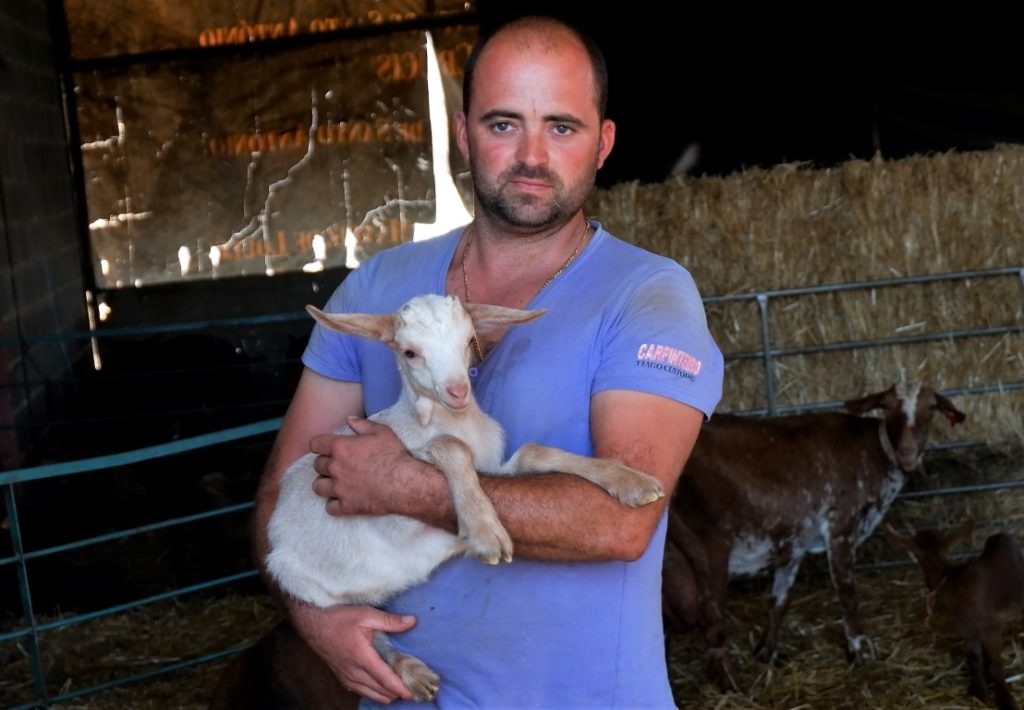 The cracked earth, denouncing that the water that used to cover it has long since evaporated, and the almost empty ponds leave no doubt: the drought has already reached the Northeast of Algarve. The worst thing is that it seems to be here to stay.
The cracked earth, denouncing that the water that used to cover it has long since evaporated, and the almost empty ponds leave no doubt: the drought has already reached the Northeast of Algarve. The worst thing is that it seems to be here to stay.
In the interior of the Eastern Algarve, the living green can still be seen, but in the needles of the many pine trees that populate the mountains. Even the well-adapted dryland orchard shows that the lack of rain and the accumulation of years of low rainfall is having consequences.
The brown autumn does not fail to stand out, but it is in the fields, almost completely devoid of weeds, that it is most noticeable. The contrast is given by the baroque and stones, which, despite not adding color to the landscape, always break the monotony.
It's the drought, say those who live in the Algarve's Northeast, with concern. It is the drought, confirms the Ministry of Agriculture, which extended to the municipalities of Alcoutim and Castro Marim the Measures Drought 2017, already in force in Alentejo and elsewhere in the country.
This means that there is support to help producers face the consequences of water scarcity. But this aid is only available to the livestock sector, leaving out farmers, particularly fruit growers. Also without access to the measure are those who, by administrative whim, live in other municipalities, next door, even though they face the same problems.
From the top of the hill where André Palma Mateus has his Algarvian goat milk production unit and where he keeps his animals, located in Feital, Corte João Marques, in the Parish of Ameixial (Loulé), you can see the councils of Alcoutim, Almodovar and Mértola. But, despite these three municipalities, which are within the Measures Seca 2017, are no more than three kilometers from Feital, this goat farmer cannot access the same support as his neighbors.
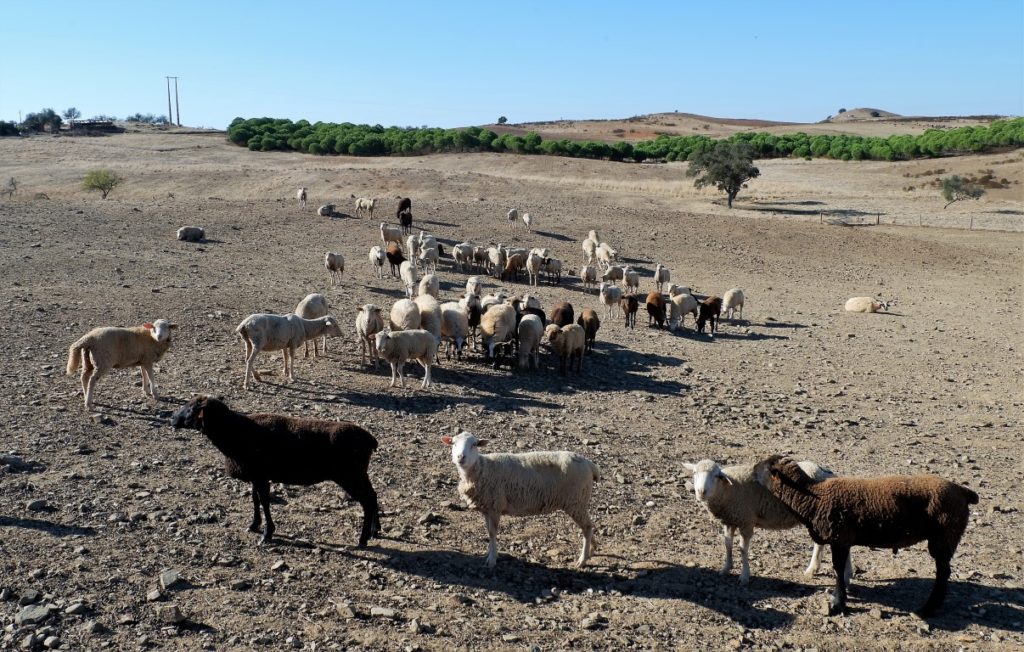
This does not prevent you from having exactly the same problems. Goats and sheep in the Northeast of Algarve are grazing little or nothing these days. The fields are completely clean after a summer that persists into the autumn and not even the roots are left.
With the drought, the herds can do little more than stay in the field, waiting for the collection to their corrals and the much-desired doses of water and feed. The presence of a human element continually awakens an unusual interest: is there food coming? The question can be guessed at in the animals' expectant looks.
André Palma Mateus guarantees, every day, water and feed to his 350 goats. Only on feed, spend between "150 and 180 euros per day". “If it continues without rain, I don't know what will happen. I don't even want to think about it, this is my livelihood, my life, my job. Look, let's pray for it to rain!», he vented.
Without this financial effort made by the goat farmer, «many of the animals had already died». «There is no pasture, there is nothing. I have had to buy feed for six or seven months», he says.
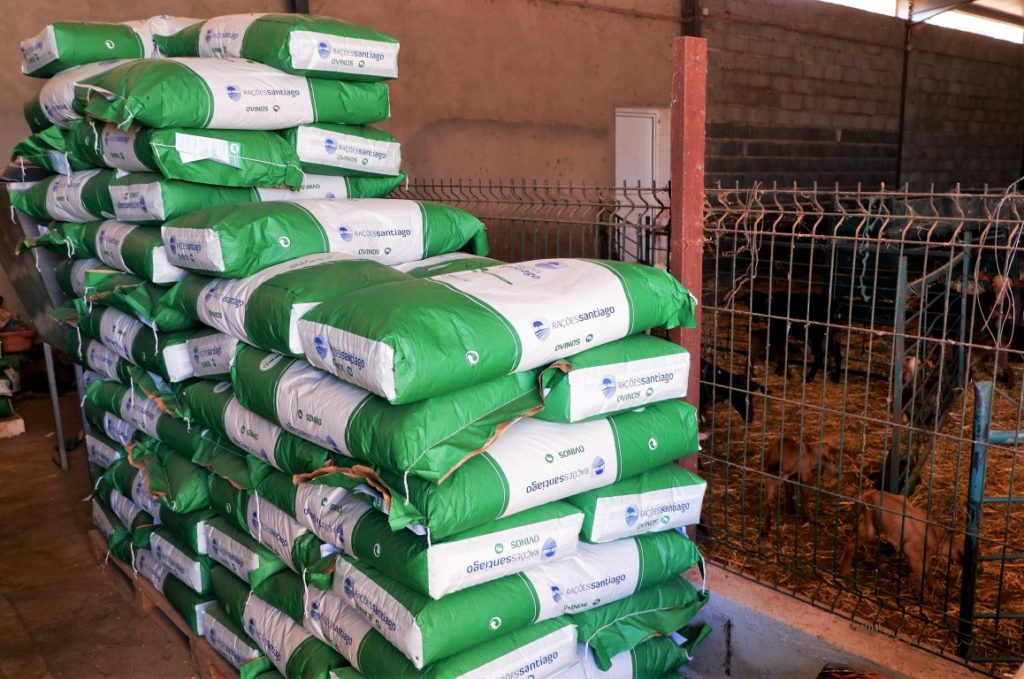
“Here, for us, there is no help. They think we don't need support to keep this going. I'm here in a little corner, three kilometers from Alcoutim and sharing it with Almodôvar and Mértola. I'm here to see them», added André Palma Mateus, without hiding the revolt he feels.
Despite the fact that we are at a time of year when there should already be new pastures, without rain "we don't know when there will be". “This is just earth and stone, even roots I don't know if there are any”, illustrated the goat farmer.
And going out with the herd is increasingly a risk, as the almost exhausted ponds have become potential sources of disease and must be avoided. «I have already died of cattle, due to the bad waters. The food is also poor and, with the slightest carelessness, they die. I have all the vaccinations in order, but that's not enough. The big problem we have here is the lack of water and food», he summed up.
«There was a pond that had dried up completely. I have a well here on the property that can be used to wash the milking room and for them to drink, but I am always on the edge. Every now and then, I don't have water», he revealed.
The sad proof of this reality is the goat that André Palma Mateus saw die on the way to the fields where he leaves his flock, during the day, just before talking to the Sul Informação.
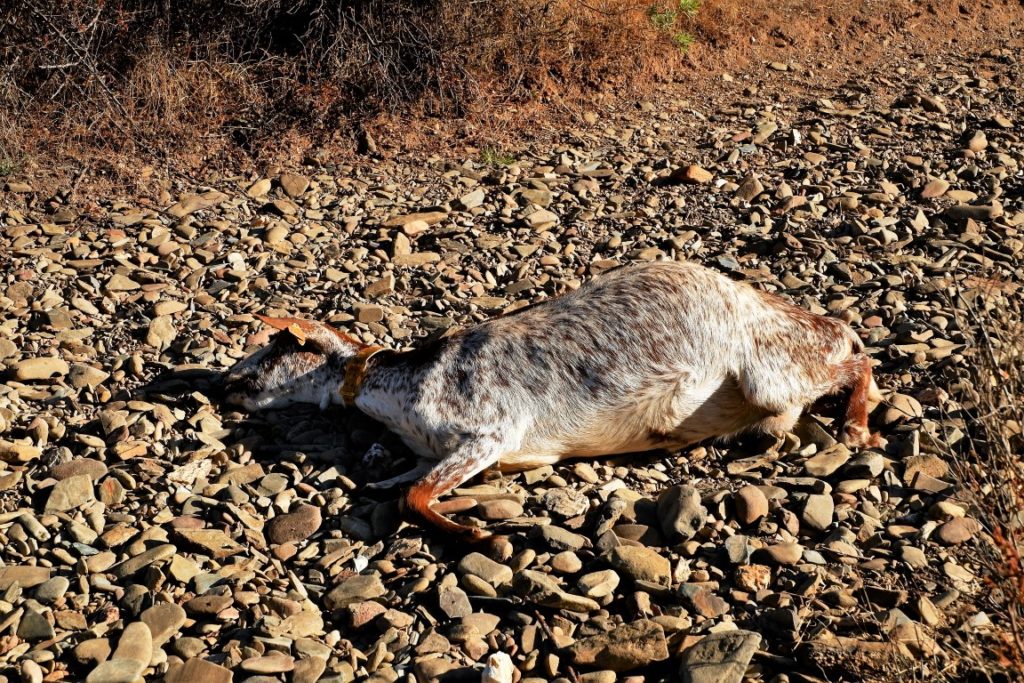
The prayers of André Palma Mateus – and of many others – seem to have been heard. But the rain announced for these days will be insufficient to solve a problem that has been going on for years.
The drought in the Northeast of Algarve, which is officially severe, but some argue that it has already reached extreme, has not started now. This is, according to the Algarve Regional Directorate of Agriculture and Fisheries, a problem that has been going on for many years.
And, although 2016 was a year with levels of rainfall within the average, the years that preceded it and what is now running are well below normal, as far as the amount of rain is concerned. In other words, as explained by Florentino Valente, head of the Agriculture, Studies and Programming Division of that entity, in recent years "there has not been enough water to hydrate the soils and replenish the water tables".
It was this reality that led the Government to extend the 2017 Dry Measures to the municipalities of Alcoutim and Castro Marim, a decision to which the monitoring work of DRAPAlg contributed greatly, but also the pressure of the Cumeadas association and other producer organizations. The president of the Chamber of Alcoutim Osvaldo Gonçalves was another of those who took up this banner.
It was precisely in the Alcoutenejos Town Hall that the Sul Informação attended one of the two clarification sessions that DRAPAlg promoted, to inform professionals in the sector about what is being done to mitigate the consequences of the drought.
A message that may have reassured part of the assistance, namely those who have animals, but which did not serve to appease those who invested, in some cases large sums, in fruit-growing projects.
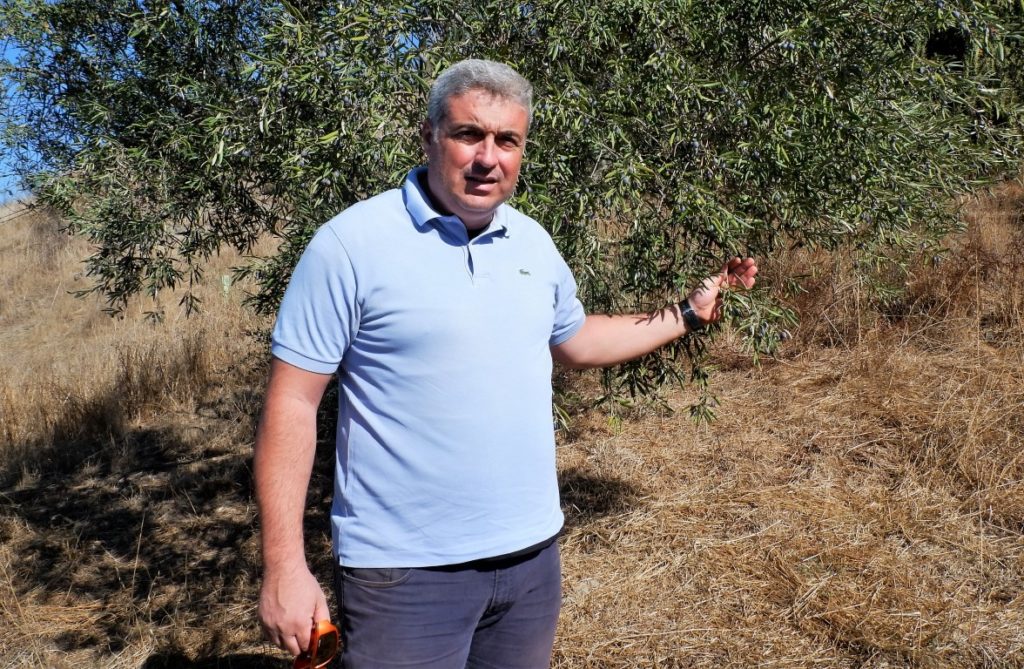
Valter Luz, founder and manager of the company Luzagro, headquartered in Diogo Dias, in the parish of Martim Longo, paints a dark backdrop for his activity, olive growing.
«The measures of the drought do not contemplate the total reality that lives here. There are not only animals, there are also investments made in other areas. Of the more than 30 projects by young farmers who came to Alcoutim, only one or two are for animals. All the others are linked to endaphoclimatically adapted plants, such as the strawberry tree, the olive tree and the almond tree», he explained.
Alongside the bet on well-adapted tree species, «investments were made in ponds and holes», to guarantee irrigation – which, in this case, is the same as saying productivity. "But as we are in a six-year drought cycle, the holes are mostly dry, the ponds could not withstand the summer, because the evapotranspiration levels were brutal - both in the water that heated and evaporated, as in the which was used in watering, which did not reach the roots, because the humidity levels were zero”, guaranteed Valter Luz.
“I remember being watering at night and the stones were still hot. We are talking about 10 or 11 at night», he recalled.
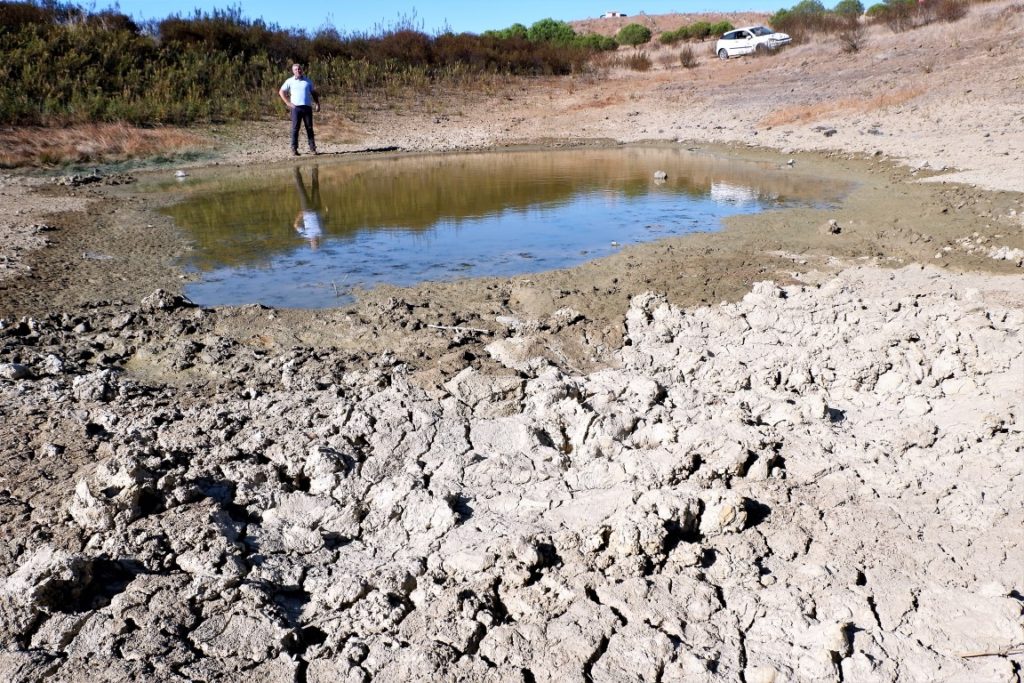
For someone like Valter Luz, who three years ago planted thousands of olive trees with the support available to young farmers and now manages an intensive irrigated olive grove, where the trees are clones of very old ones that already existed on the land, this situation is truly worrying. . Even because everything was done anticipating potential droughts, but not a prolonged one.
“In most dryland trees, we are witnessing a calamity. There are areas, in Alcoutim, close to the river, where some rain fell some time ago, which allowed the fruit to be given some “meat”. But here in the interior, we had temperatures of 40 to 50 degrees during the summer, no rain, the plant is parched and under water stress. It's not even worth picking this olive. It is not even suitable for oil, when normally they can be used for oil and as table olives», he illustrated.
In the case of Luzagro, the main business is table olives, which must have a larger caliber than that used for olive oil.
“In our projects, we considered everything possible: the dams have a large perimeter, the investment was well calculated, but no one was counting on almost six years of drought. That was the big problem», revealed the farmer.
This is a problem, in itself, which can lead "to the accentuation of desertification and a setback in agriculture in the Northeast of Algarve". But it brings additional complications for young farmers who looked at this territory and decided to invest there a few years ago.
“When we receive support for young farmers, it is necessary to prove that the plan is viable and that it has legs to walk. But there are imponderables, which lead to the goals not being met», he said. If these objectives are not met, the beneficiaries of the support may, at the limit, have to return them.
There is, therefore, a problem, “but there are also solutions: if the measures are open to everyone and there is the possibility of making new, deeper water collections, and there is a willingness to bring water to the municipality”.
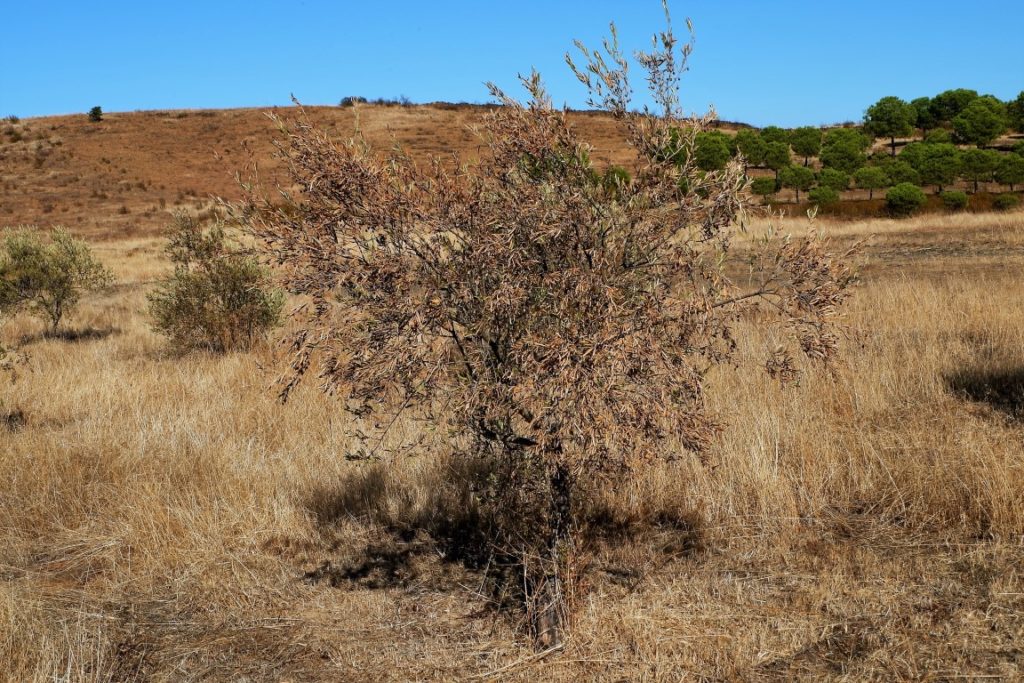
«This is a municipality with enormous potential, which has high quality olives and arbutus trees and other excellent products, such as honey. But consciousness has to be changed. We have to build a dam in Vascão or bring the water that already exists there in Mértola to here. It is necessary to think about irrigation, because water is the blood of the earth and without it there is no agriculture», believes Valter Luz.
The disastrous consequences of the drought for the dryland orchard, especially for the olive groves, are not felt only by Valter Luz.
According to Fernando Severino, regional director of Agriculture and Fisheries, the drought "is already being felt in the region's olive groves, but not only." "There are olives in quantity, but lacking in caliber," he explained. And this is not a residual crop in the Algarve, bearing in mind that «there are 8 thousand hectares of olive groves» in the Algarve.
Even so, the consequences of drought on agriculture in the Algarve are still not much felt, taking into account that, according to Águas do Algarve, the dams are at good levels. This means that there are no concerns, for the time being, with regard to the availability of water for human supply, not even for irrigation.
The problem is that the irrigation perimeters of the different dams do not reach the entire Algarve territory. The Northeast of the region is a good example: the Odeleite dam has a lot of water, but it only reaches farmers who have their farms south of the infrastructure. Those to the North were outside the irrigation perimeter.
This, together with the lack of water in the subsoil and in rivers and streams, is one of the main reasons why the drought is being felt with greater intensity in this territory.
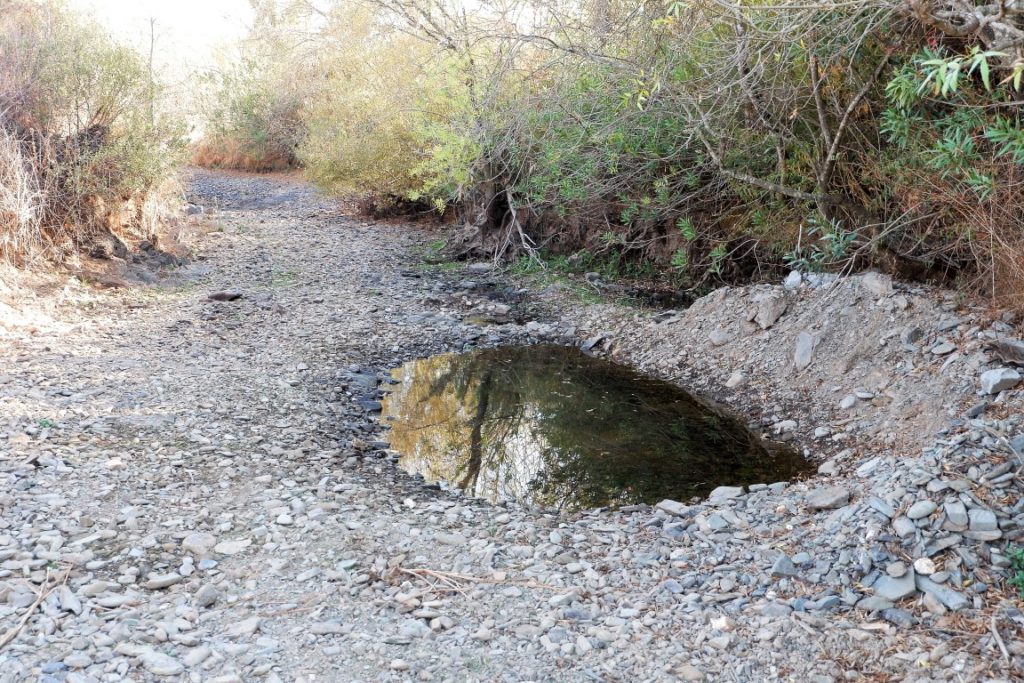
Fruit growers in Alcoutim and Castro Marim will still have to fight for measures to help them mitigate their foreseeable losses. Those who have animals can, from now on, present projects that aim to “guarantee watering” of their herds.
As explained by DRAPAlg, "small investments are eligible, up to a maximum of 25 thousand euros", which can include machinery and equipment, small agricultural and livestock constructions, multi-year plantations and, of course, boreholes and ponds.
These applications can be made until the 17th of November and a 50% contribution is guaranteed.
Despite the help being available, Nuno Madeira, president of ANCCRAL – Association of Breeding Goats of the Algarve, does not believe that there are many goat farmers presenting projects.
“I don't believe it has a great adhesion, as I don't think it pays off in monetary terms. Most of the companies are family-owned and have very small holdings», he said.
What would be positive, he argued, was the creation of a subsidy for food supplements that animal owners have to give them, due to the lack of pastures. “In a normal year, we would not be supplementing the animals at this point. It was positive to create a system in which support was provided against invoice,” he said.
As for the drought itself, he says that, apart from "a few occasional cases", it is not causing problems related to the death of animals, being, above all, a problem of financial sustainability of the farms. But that could change quickly if the rain doesn't come and in the right amounts and timing.
«The worst scenario is if heavy rains come, with long intervals between them, as they do not allow the plants to continue growing and flowering», believes Nuno Madeira.
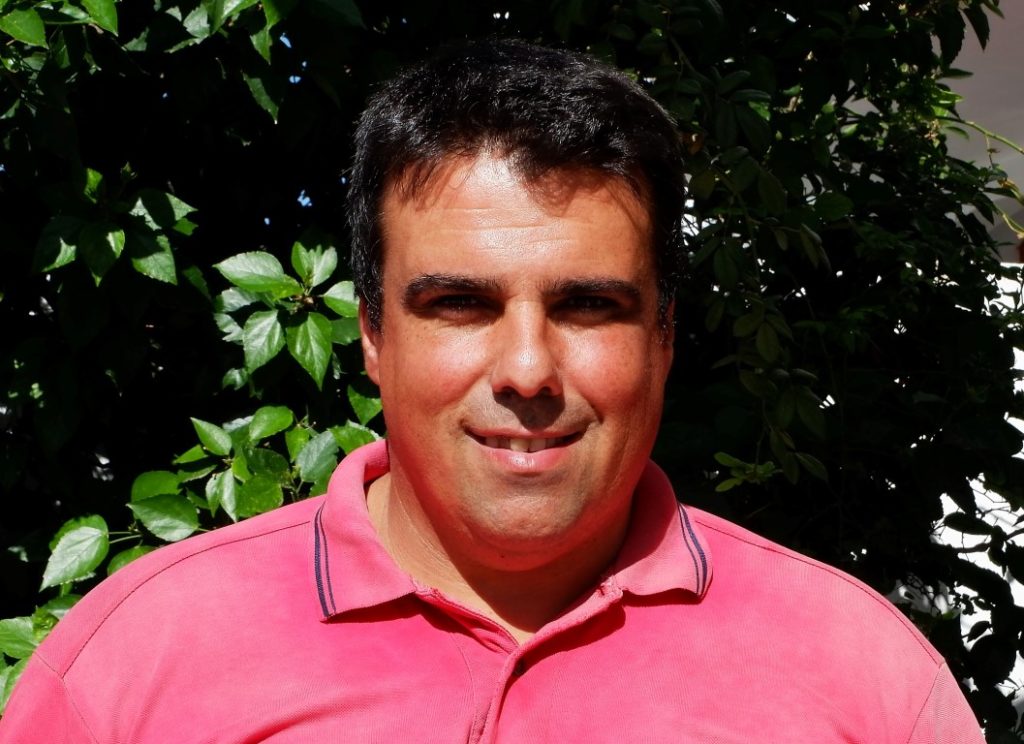
Between prayers and failed expectations, the drought seems to have come to stay for a while longer, in the interior of the Algarve (and the country). “The average for the last five years is lower than for the previous five years. The pattern we see is that there will be a drought every few years. There are also shorter and shorter periods of rain», illustrated Florentino Valente, from DRAPAlg.
From the minister of Agriculture Capoulas Santos, who at the beginning of the week was present at the meeting where the second report of the Monitoring Commission for the Drought, created in July was presented, comes a guarantee that the situation is being closely monitored and that the extension of the 2017 Drought Measures to other municipalities is not ruled out, nor is the creation of new support.
For now, in addition to support for projects to ensure watering of animals, "500 thousand euros" were advanced in European Union support that would only be paid at the end of the year and a "bonus credit line, with a one-year grace period" was opened. for the purchase of feed, the member of the Government told Antena 1.
André Palma Mateus, Valter Luz and those in his situation, apparently, they still have a lot to fight and pray that their problems find a solution.
Photos: Hugo Rodrigues|Sul Informação
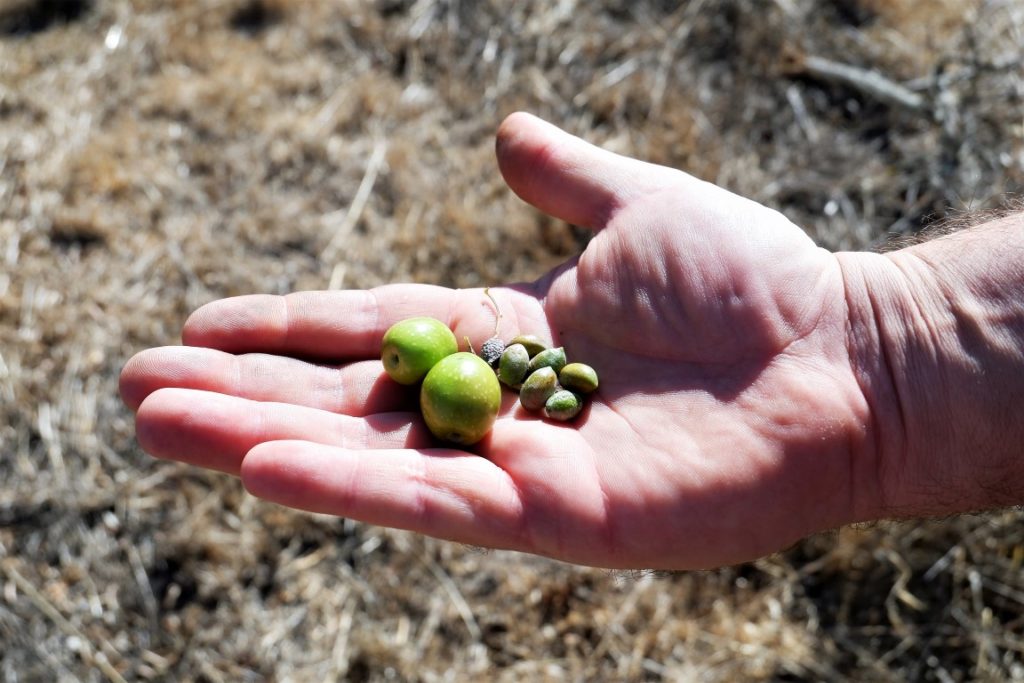
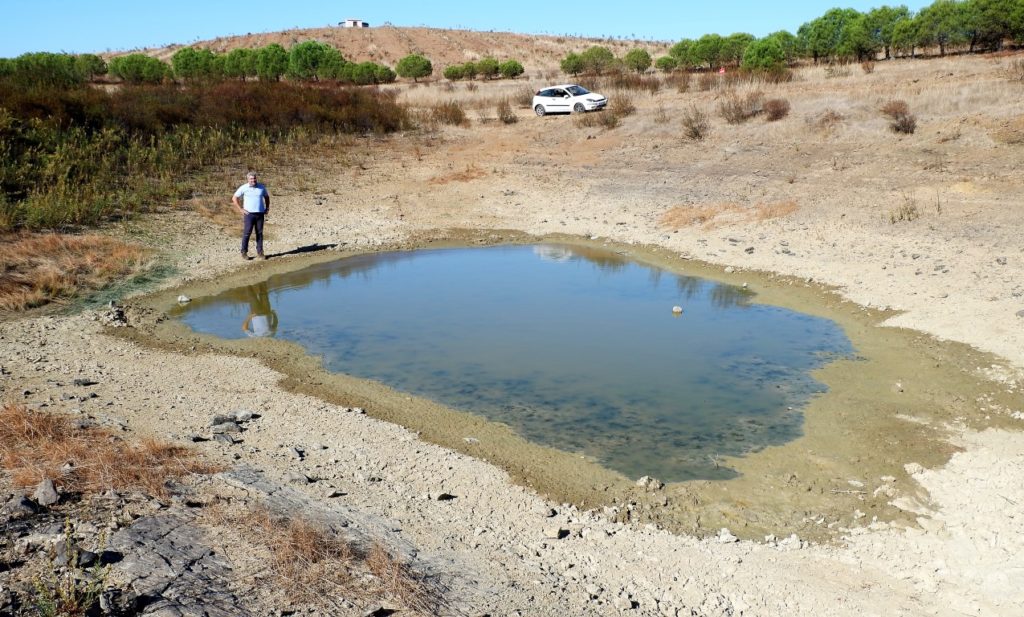
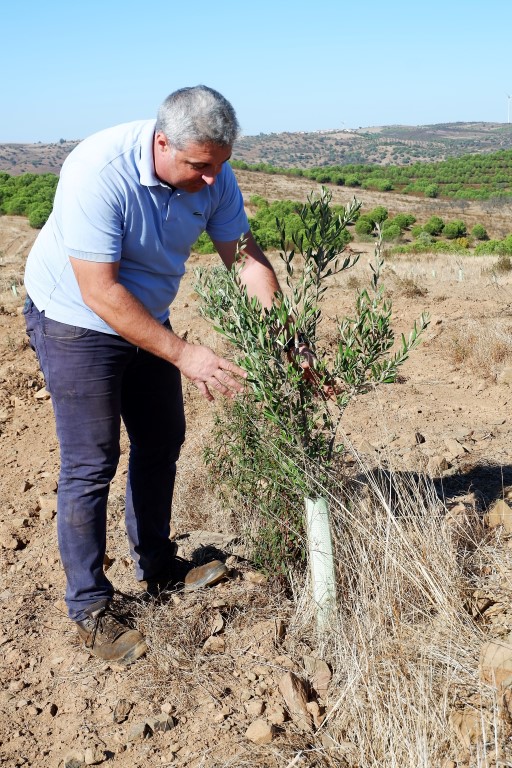
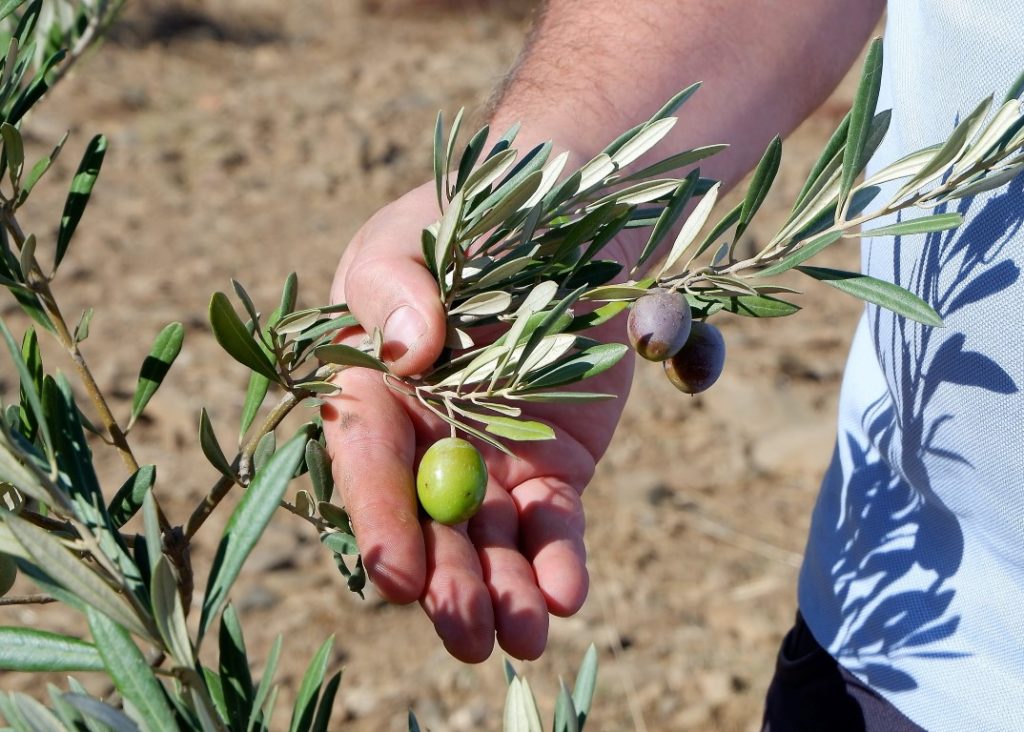
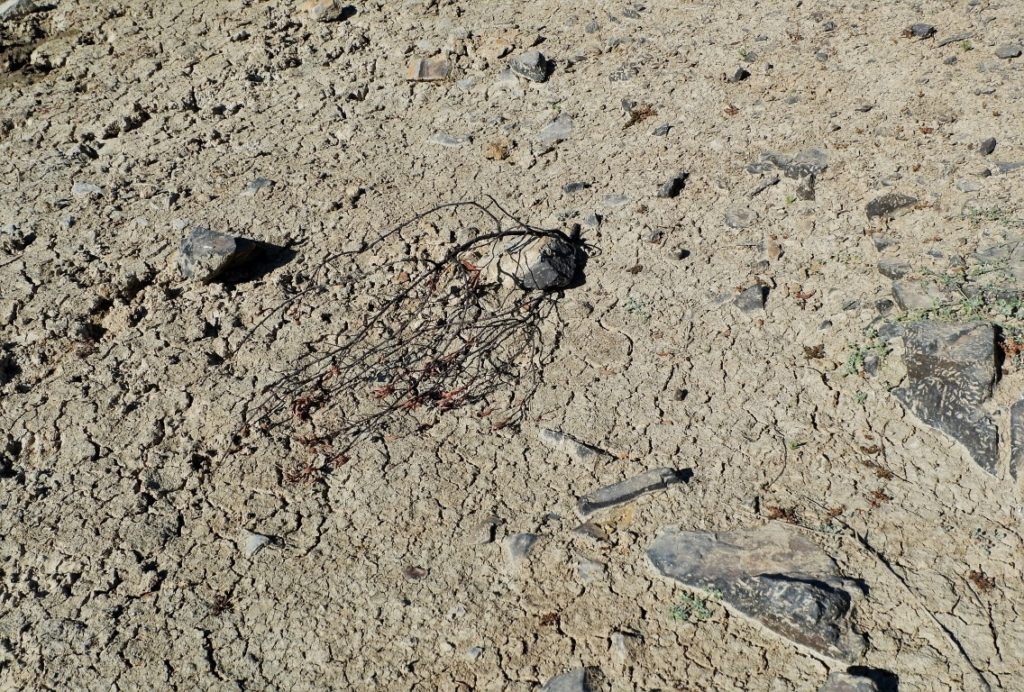
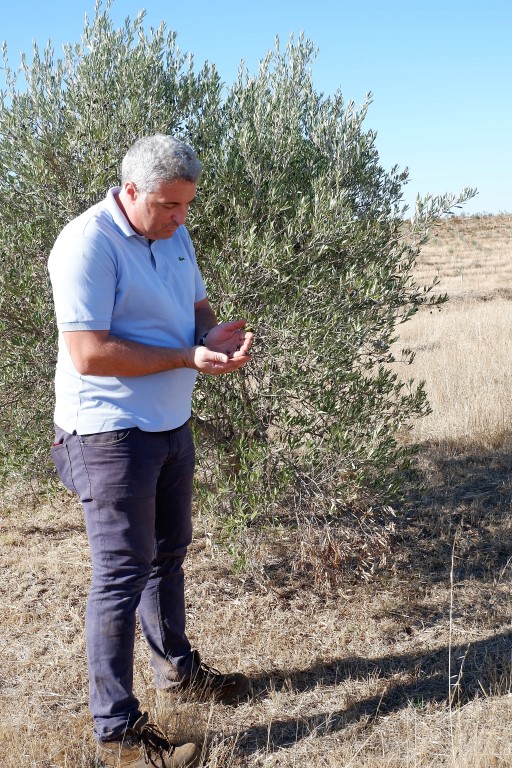
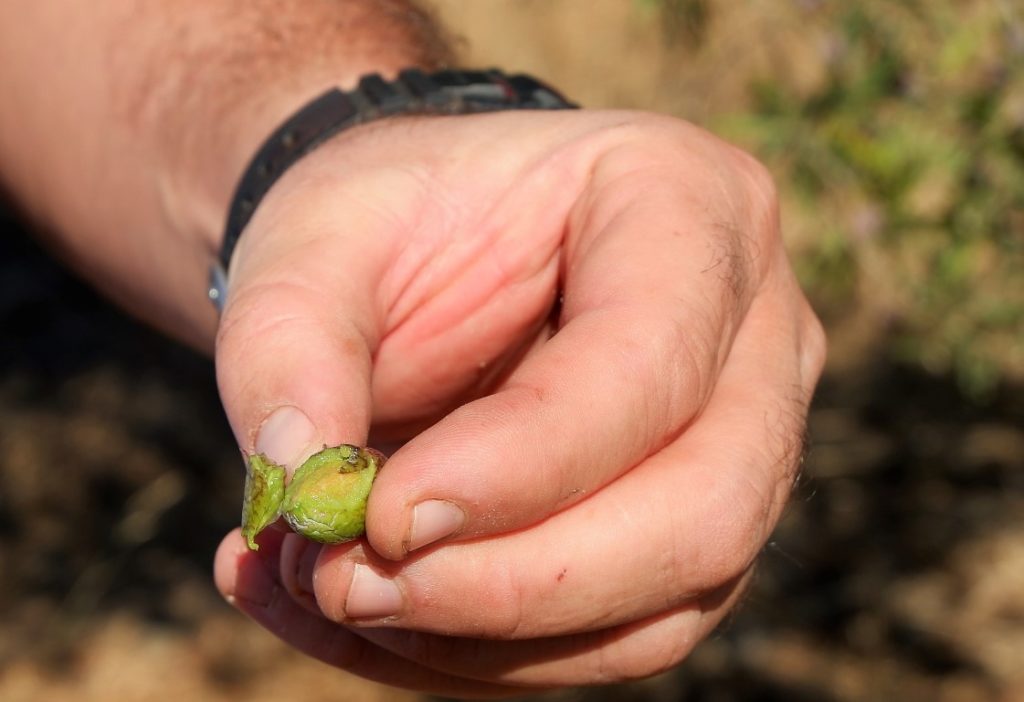
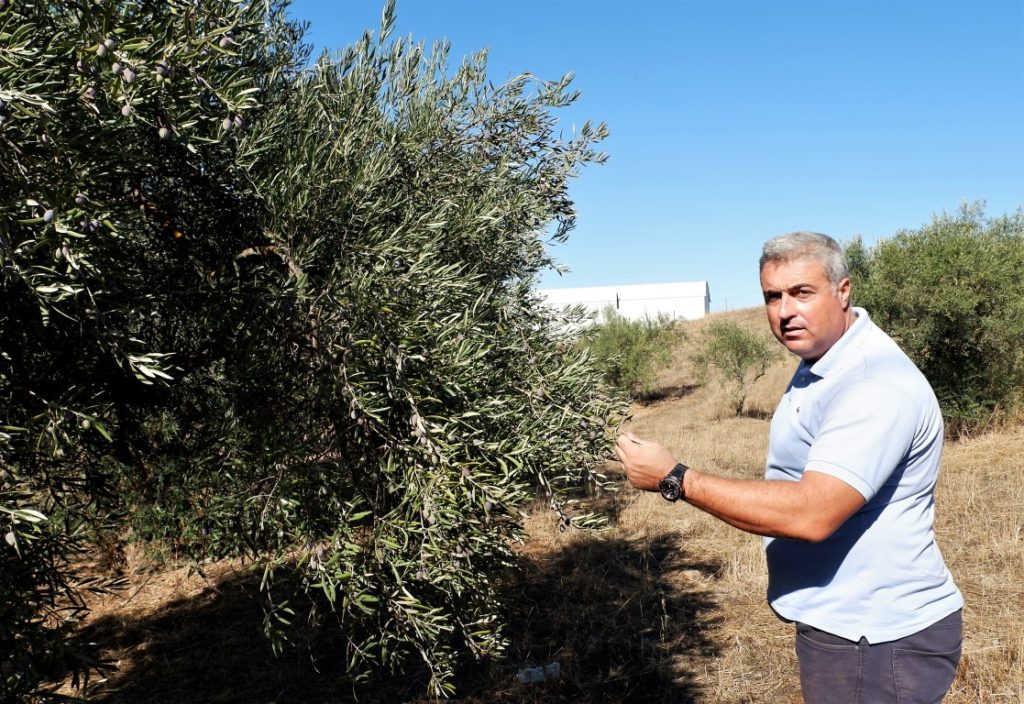
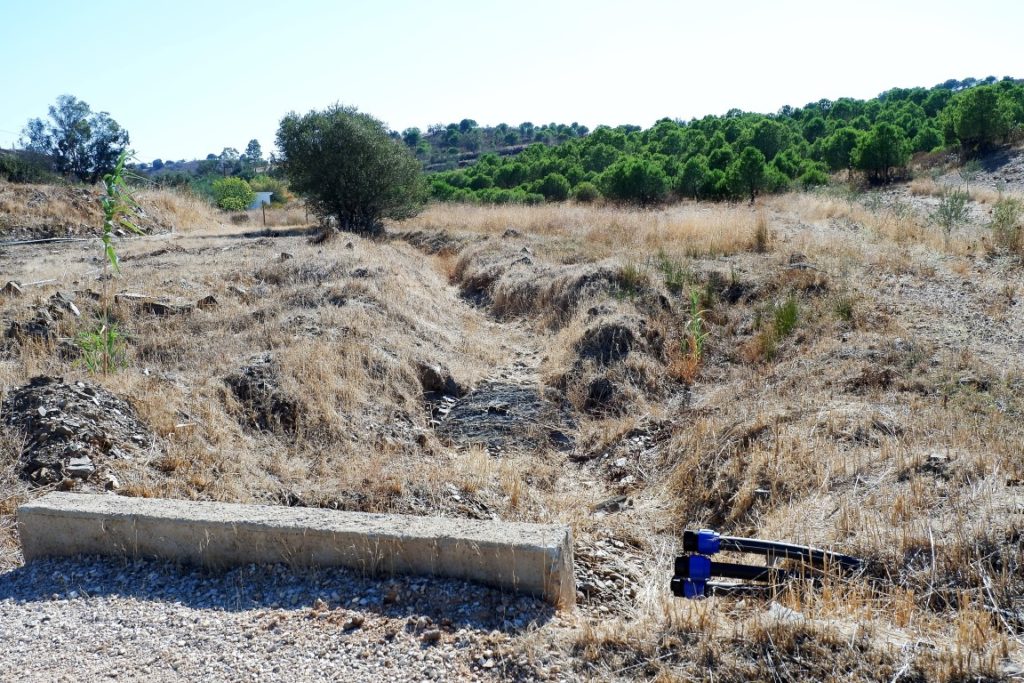
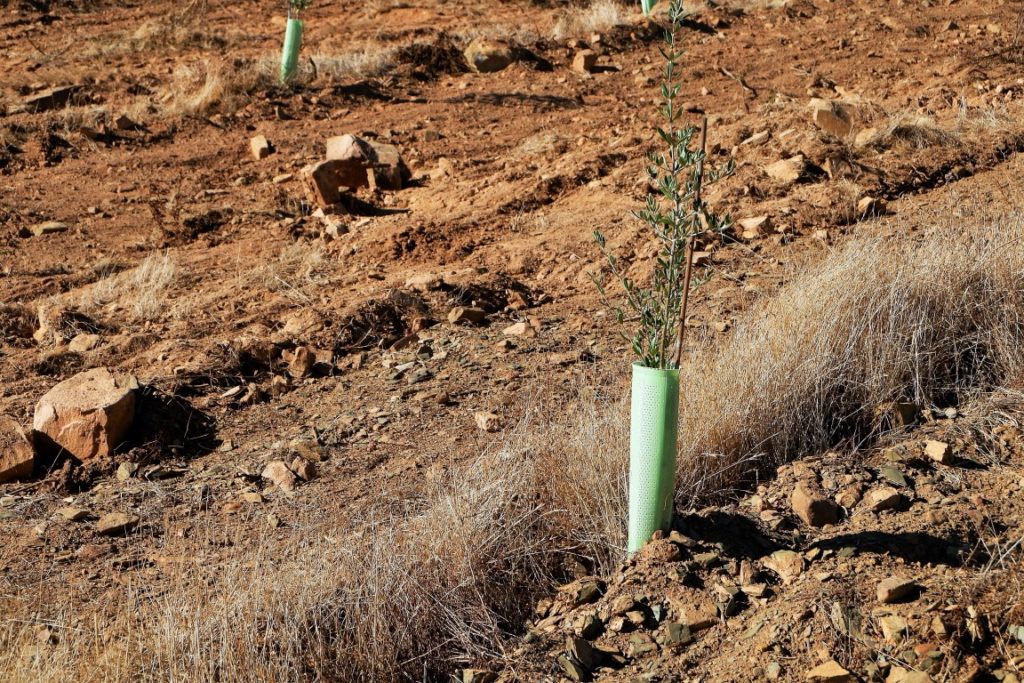
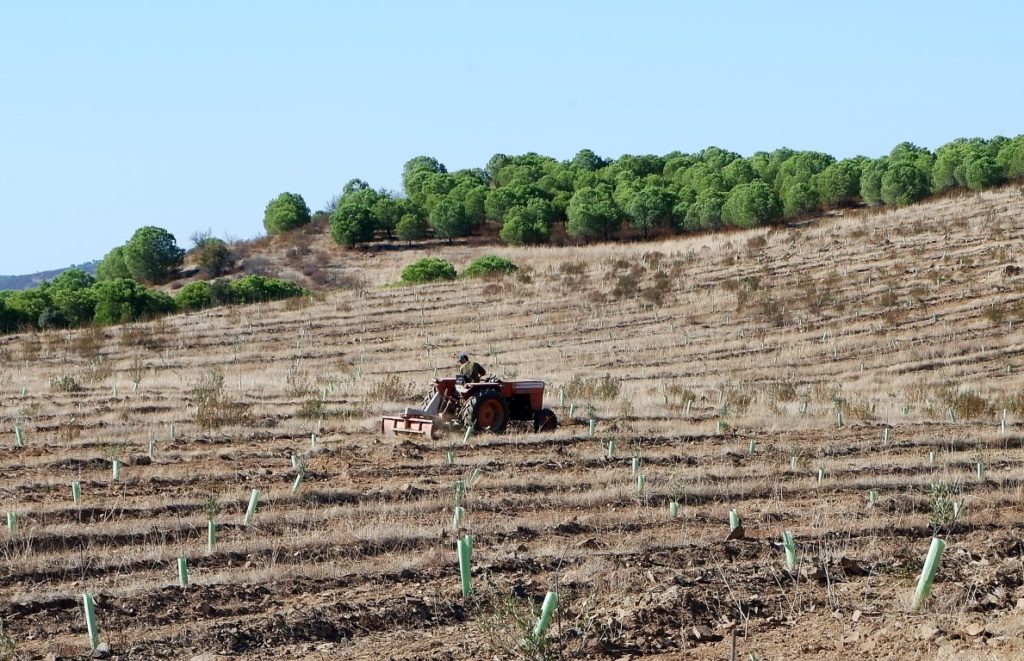
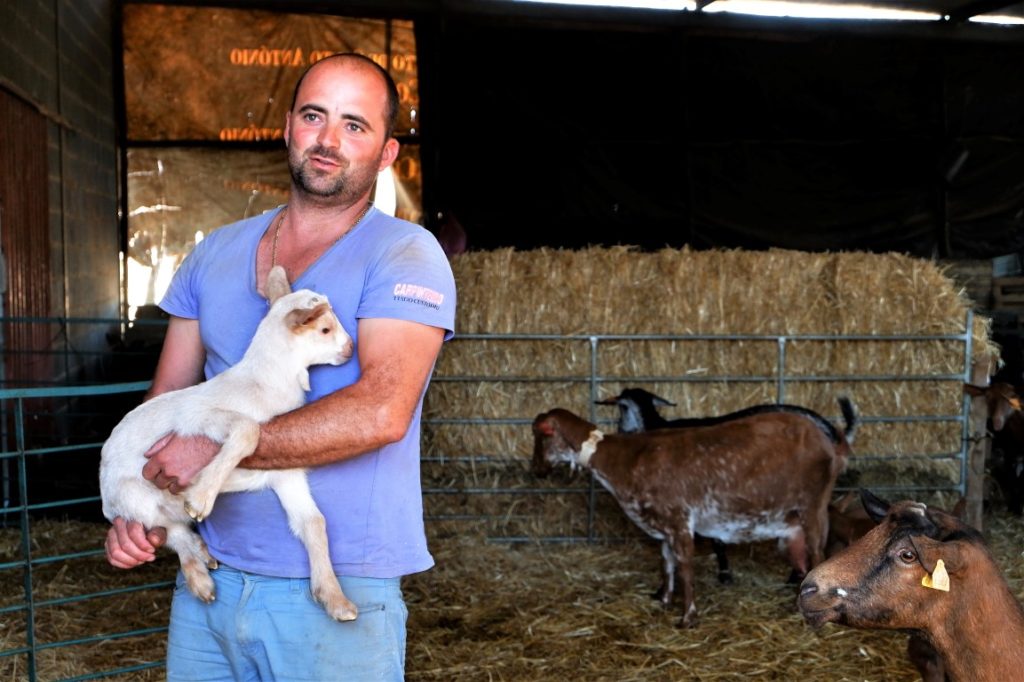

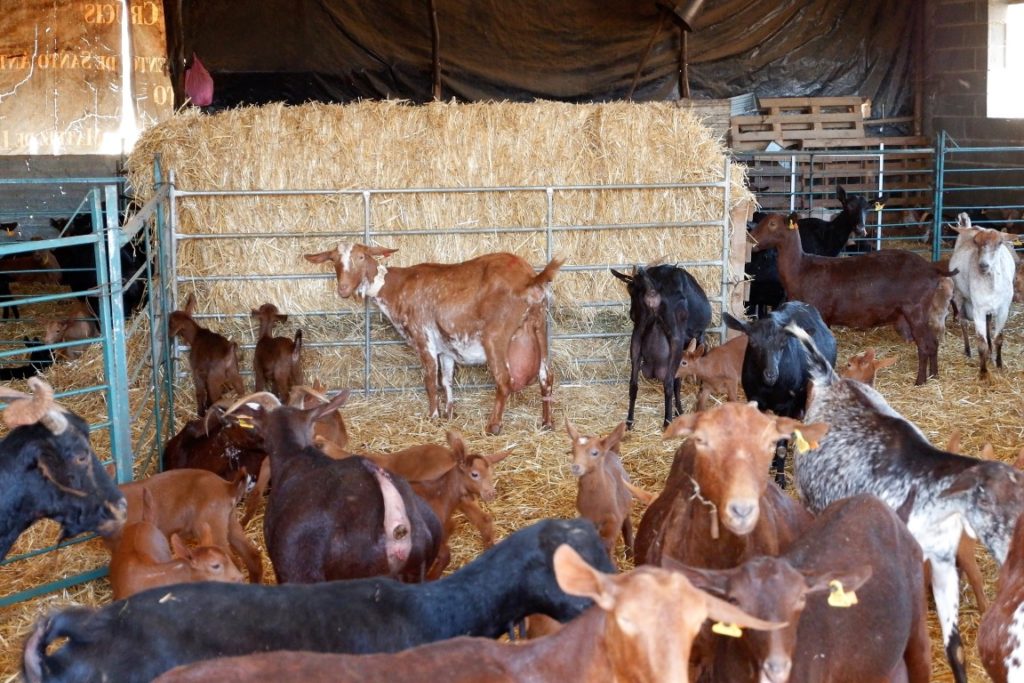


















Comments